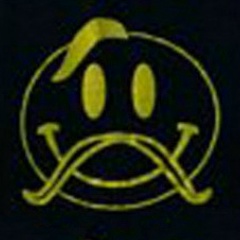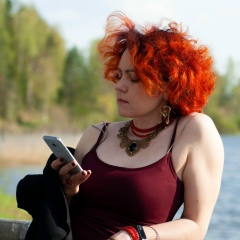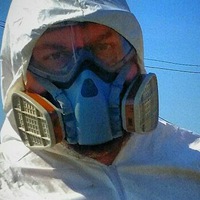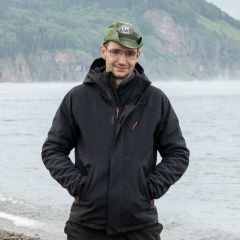Давайте посмотрим на некоторые вопросы с другой стороны, как-нибудь альтернативненько. Например, на церковь(не РПЦ). Сразу скажу, что это не только мое личное сочинение, а переосмысление прочитанного.
Так вот. Мы все прекрасно знаем, что всякие церковные запреты в новое время это очень плохо. Галилея заставляли от чего-то там отказываться, Бруно сожгли. Еще кого-то там сожгли. Парочка ученых, которых потом назвали отцами наук, были в запрещенных списках церкви. В общем, все делали, чтобы науки не было.
Но, возможно, все было не так, а совсем наоборот. Без церкви всей этой нашей науки особо бы не было.
Я так понимаю, проблемы у церкви начались с появления книгопечатания. Если можно было печатать Библию, очевидно, что сразу можно было печатать любой бред. А это было чревато проблемами, потому что в те времена (да и сейчас) к печатному слову было излишне много веры. Только тогда за это еще войной могли пойти на кого-нибудь.
Нужно было придумать правила игры по которым отличать что-то истинное от чего попало. И тут встали и проявились основные аксиомы церкви:
1. В начале было Слово, и Слово было у Бога, и Слово было Бог.
(Св. Евангелие от Иоанна 1:1)
Вроде это набор слов, который мало что значит, но всякие умные люди это интерпретировали в средние века так (тут я вольно цитирую не себя):
"В начале" — значит, у вселенной есть начало и конец,
"Слово было Бог" —- значит, вселенная объективна (потому что Бог) и выразма символически (потому что Слово) и следовательно познаваема, потому что конечна из первого пункта.
И это как раз те аксиомы, внезапно, которые лежат в основе современного научного знания, и в практике подхода к получения этого знания. И это те аксиомы на соответствие которым церковью проверялось все подряд. Одним из критериев объективности, естественно, было соответствие эксперименту (на котором все сейчас строится в науке). Естественно, там был еще миллион политических и этических соответствий, но это вторично.
Именно тогда попытки церкви цензурировать контент привели к появлению в Венецианской республике интеллектуального права и копирайта, а так же, внимание, патентного права на изобретения, которое выдавалось на 10 лет(и даже Галилей им пользовался). Потом оттуда эти достижения перенеслись в другие страны. В Англию и Францию, потому что Венеция всегда была модная.
Короче, отцы церкви очень жестко цензурировали все, что было им душевно неугодно. И в основном это были (как ни странно) всякие хироманты, маги, волшебницы, сектантские лидеры и безумные пантеисты вроде Бруно. В общем, все то, что сейчас бы называлось лженаукой. Это была не только плотина на пути инакомыслия. Это была плотина на пути непроверямых гипотез во времена, когда люди верили в любую чушь. Это не было гуманно, но то время вообще гуманностью не отличалось.
Но, что позитивно, это создало некоторый тренд в стилистике и требовании в содержательной наполненности текстов. Эти требования привели в итоге к трудам Коперника, Галилея и Ньютона. Причем, книги Коперника были запрещены всего на 4 года через 70 лет после первой публикации и потом выпущены обратно с минимальными исправлениями. В 6 книгах были исправлены 9 предложений. А проблемы Галилея были не в его идеях, а в его давлении на церковь и несговорчивости, которое привело, собственно, к тому, что вопрос с гелиоцентризмом еще какое-то время стоял. Сама идея гелиоцентризма церковь тогда обижала не сильно, но надо было проявить дипломатию.
Естественно, потом, абстрагированный от церковных истоков и политики церковный подход стал просто называться "научной парадигмой." А потом в 20 веке и она пошла трещинами, когда все аксиомы стали подвергаться сомнению. Например, модная идея о том, что большая часть происходящего во вселенной не может быть символически выражена. И люди в своем восприятии просто формируют пространство из того, что способны воспринять, и что повторяется достаточное количество раз, чтобы это воспринять как отдельный феномен.
Это все, естественно, выразилось в написании огромного количества мировоззренческих трудов, которые формируют всякие разные безумные представления у граждан, а сама наука, в силу своего социального позиционирования, не имеет в обществе авторитет в вопросе цензурирования всего этого шлака. Более того, в силу ограниченности ресурсов, внутривидовая борьба в науке приводит к созданию еще большего количества всякого говна или просто бесполезного информационного мусора, которое вываливается в СМИ под пафосными заголовками, из которых следует, что кофе это страшный яд и одновременно лекарство от всех болезней.
Я тут не к тому, что давайте возродим в былом величии конгрегацию доктрины веры, чтобы она указывала ученым, отрава кофе или нет, я просто к тому, что, кажется, все в нашей истории науки не совсем так, как мы читали на каждом углу.
Так вот. Мы все прекрасно знаем, что всякие церковные запреты в новое время это очень плохо. Галилея заставляли от чего-то там отказываться, Бруно сожгли. Еще кого-то там сожгли. Парочка ученых, которых потом назвали отцами наук, были в запрещенных списках церкви. В общем, все делали, чтобы науки не было.
Но, возможно, все было не так, а совсем наоборот. Без церкви всей этой нашей науки особо бы не было.
Я так понимаю, проблемы у церкви начались с появления книгопечатания. Если можно было печатать Библию, очевидно, что сразу можно было печатать любой бред. А это было чревато проблемами, потому что в те времена (да и сейчас) к печатному слову было излишне много веры. Только тогда за это еще войной могли пойти на кого-нибудь.
Нужно было придумать правила игры по которым отличать что-то истинное от чего попало. И тут встали и проявились основные аксиомы церкви:
1. В начале было Слово, и Слово было у Бога, и Слово было Бог.
(Св. Евангелие от Иоанна 1:1)
Вроде это набор слов, который мало что значит, но всякие умные люди это интерпретировали в средние века так (тут я вольно цитирую не себя):
"В начале" — значит, у вселенной есть начало и конец,
"Слово было Бог" —- значит, вселенная объективна (потому что Бог) и выразма символически (потому что Слово) и следовательно познаваема, потому что конечна из первого пункта.
И это как раз те аксиомы, внезапно, которые лежат в основе современного научного знания, и в практике подхода к получения этого знания. И это те аксиомы на соответствие которым церковью проверялось все подряд. Одним из критериев объективности, естественно, было соответствие эксперименту (на котором все сейчас строится в науке). Естественно, там был еще миллион политических и этических соответствий, но это вторично.
Именно тогда попытки церкви цензурировать контент привели к появлению в Венецианской республике интеллектуального права и копирайта, а так же, внимание, патентного права на изобретения, которое выдавалось на 10 лет(и даже Галилей им пользовался). Потом оттуда эти достижения перенеслись в другие страны. В Англию и Францию, потому что Венеция всегда была модная.
Короче, отцы церкви очень жестко цензурировали все, что было им душевно неугодно. И в основном это были (как ни странно) всякие хироманты, маги, волшебницы, сектантские лидеры и безумные пантеисты вроде Бруно. В общем, все то, что сейчас бы называлось лженаукой. Это была не только плотина на пути инакомыслия. Это была плотина на пути непроверямых гипотез во времена, когда люди верили в любую чушь. Это не было гуманно, но то время вообще гуманностью не отличалось.
Но, что позитивно, это создало некоторый тренд в стилистике и требовании в содержательной наполненности текстов. Эти требования привели в итоге к трудам Коперника, Галилея и Ньютона. Причем, книги Коперника были запрещены всего на 4 года через 70 лет после первой публикации и потом выпущены обратно с минимальными исправлениями. В 6 книгах были исправлены 9 предложений. А проблемы Галилея были не в его идеях, а в его давлении на церковь и несговорчивости, которое привело, собственно, к тому, что вопрос с гелиоцентризмом еще какое-то время стоял. Сама идея гелиоцентризма церковь тогда обижала не сильно, но надо было проявить дипломатию.
Естественно, потом, абстрагированный от церковных истоков и политики церковный подход стал просто называться "научной парадигмой." А потом в 20 веке и она пошла трещинами, когда все аксиомы стали подвергаться сомнению. Например, модная идея о том, что большая часть происходящего во вселенной не может быть символически выражена. И люди в своем восприятии просто формируют пространство из того, что способны воспринять, и что повторяется достаточное количество раз, чтобы это воспринять как отдельный феномен.
Это все, естественно, выразилось в написании огромного количества мировоззренческих трудов, которые формируют всякие разные безумные представления у граждан, а сама наука, в силу своего социального позиционирования, не имеет в обществе авторитет в вопросе цензурирования всего этого шлака. Более того, в силу ограниченности ресурсов, внутривидовая борьба в науке приводит к созданию еще большего количества всякого говна или просто бесполезного информационного мусора, которое вываливается в СМИ под пафосными заголовками, из которых следует, что кофе это страшный яд и одновременно лекарство от всех болезней.
Я тут не к тому, что давайте возродим в былом величии конгрегацию доктрины веры, чтобы она указывала ученым, отрава кофе или нет, я просто к тому, что, кажется, все в нашей истории науки не совсем так, как мы читали на каждом углу.
Let's look at some questions on the other hand, somehow alternatively. For example, on the church (not the ROC). I must say that this is not only my personal essay, but a rethinking of what I read.
So here. We all know very well that all church bans in the new time are very bad. Galileo was forced to give up something there, Bruno was burned. Someone else burned there. A couple of scientists, who were later called the fathers of science, were on the banned lists of the church. In general, they did everything to prevent science.
But perhaps it was not so, but quite the opposite. Without the church, all this science would not exist.
I understand that the problems with the church began with the advent of typography. If it was possible to print the Bible, it is obvious that any nonsense could be printed right away. And this was fraught with problems, because in those days (and even now) there was too much faith in the printed word. Only then for this war could go on someone.
It was necessary to invent the rules of the game that distinguish something true from anything. And then the main axioms of the church rose and appeared:
1. In the beginning was the Word, and the Word was with God, and the Word was God.
(The Holy Gospel of John 1: 1)
It seems to be a set of words, which means little, but all sorts of smart people interpreted it in the Middle Ages like this (here I am not quoting myself freely):
"In the beginning" means the universe has a beginning and an end,
“The Word was God” —– means, the universe is objective (because God) and expressive symbolically (because the Word) and therefore knowable, because it is finite from the first paragraph.
And these are precisely those axioms that suddenly lie at the basis of modern scientific knowledge, and in the practice of the approach to obtaining this knowledge. And these are the axioms for which the church checked everything. One of the criteria for objectivity, of course, was compliance with experiment (on which everything is now built in science). Naturally, there was a million more political and ethical correspondences, but this is secondary.
It was then that the church’s attempts to censor content led to the emergence of intellectual property rights and copyright in the Republic of Venice, as well as attention, a patent right to inventions that had been issued for 10 years (and even Galileo used it). Then from there these achievements were transferred to other countries. To England and France, because Venice has always been fashionable.
In short, the church fathers censored very harshly everything that was mentally disagreeable to them. And mostly they were (oddly enough) all sorts of palmists, magicians, sorceresses, sectarian leaders and insane pantheists like Bruno. In general, all that now would be called pseudoscience. It was not only a dam on the path of dissent. It was a dam on the path of unverified hypotheses at a time when people believed in any nonsense. It was not humane, but that time in general humanity was no different.
But, positively, it created a certain trend in the style and demand for the content of the texts. These requirements ultimately led to the writings of Copernicus, Galileo and Newton. Moreover, the books of Copernicus were banned only for 4 years 70 years after the first publication and then released back with minimal corrections. In 6 books 9 sentences were corrected. But the problems of Galileo were not in his ideas, but in his pressure on the church and intractability, which led, in fact, to the fact that the question of heliocentrism still stood for some time. The idea of heliocentricism did not offend the church very much then, but it was necessary to show diplomacy.
Naturally, later, the church approach, abstracted from ecclesiastical origins and politics, became simply called the "scientific paradigm." And then in the 20th century and it went cracks, when all axioms began to be questioned. For example, the fashionable idea that most of what is happening in the universe cannot be symbolically expressed. And people in their perception just form a space out of what they are capable of perceiving, and that they repeat a sufficient number of times to perceive it as a separate phenomenon.
All this, naturally, was expressed in the writing of a huge number of ideological works, which form all sorts of different insane ideas among citizens, and science itself, by virtue of its social positioning, does not have authority in the society on censoring all this slag. Moreover, due to limited resources, the intraspecific struggle in science leads to the creation of even more shit or just useless information trash that falls out in the media under pathos headlines, from which it follows that coffee is a terrible poison and at the same time a cure for all diseases.
I don’t mean that in a past greatness let us revive the congregation of the doctrine of faith, so that it would tell scientists whether coffee is the bane or not, I’m just saying that everything in our history of science is not quite as we read at every corner .
So here. We all know very well that all church bans in the new time are very bad. Galileo was forced to give up something there, Bruno was burned. Someone else burned there. A couple of scientists, who were later called the fathers of science, were on the banned lists of the church. In general, they did everything to prevent science.
But perhaps it was not so, but quite the opposite. Without the church, all this science would not exist.
I understand that the problems with the church began with the advent of typography. If it was possible to print the Bible, it is obvious that any nonsense could be printed right away. And this was fraught with problems, because in those days (and even now) there was too much faith in the printed word. Only then for this war could go on someone.
It was necessary to invent the rules of the game that distinguish something true from anything. And then the main axioms of the church rose and appeared:
1. In the beginning was the Word, and the Word was with God, and the Word was God.
(The Holy Gospel of John 1: 1)
It seems to be a set of words, which means little, but all sorts of smart people interpreted it in the Middle Ages like this (here I am not quoting myself freely):
"In the beginning" means the universe has a beginning and an end,
“The Word was God” —– means, the universe is objective (because God) and expressive symbolically (because the Word) and therefore knowable, because it is finite from the first paragraph.
And these are precisely those axioms that suddenly lie at the basis of modern scientific knowledge, and in the practice of the approach to obtaining this knowledge. And these are the axioms for which the church checked everything. One of the criteria for objectivity, of course, was compliance with experiment (on which everything is now built in science). Naturally, there was a million more political and ethical correspondences, but this is secondary.
It was then that the church’s attempts to censor content led to the emergence of intellectual property rights and copyright in the Republic of Venice, as well as attention, a patent right to inventions that had been issued for 10 years (and even Galileo used it). Then from there these achievements were transferred to other countries. To England and France, because Venice has always been fashionable.
In short, the church fathers censored very harshly everything that was mentally disagreeable to them. And mostly they were (oddly enough) all sorts of palmists, magicians, sorceresses, sectarian leaders and insane pantheists like Bruno. In general, all that now would be called pseudoscience. It was not only a dam on the path of dissent. It was a dam on the path of unverified hypotheses at a time when people believed in any nonsense. It was not humane, but that time in general humanity was no different.
But, positively, it created a certain trend in the style and demand for the content of the texts. These requirements ultimately led to the writings of Copernicus, Galileo and Newton. Moreover, the books of Copernicus were banned only for 4 years 70 years after the first publication and then released back with minimal corrections. In 6 books 9 sentences were corrected. But the problems of Galileo were not in his ideas, but in his pressure on the church and intractability, which led, in fact, to the fact that the question of heliocentrism still stood for some time. The idea of heliocentricism did not offend the church very much then, but it was necessary to show diplomacy.
Naturally, later, the church approach, abstracted from ecclesiastical origins and politics, became simply called the "scientific paradigm." And then in the 20th century and it went cracks, when all axioms began to be questioned. For example, the fashionable idea that most of what is happening in the universe cannot be symbolically expressed. And people in their perception just form a space out of what they are capable of perceiving, and that they repeat a sufficient number of times to perceive it as a separate phenomenon.
All this, naturally, was expressed in the writing of a huge number of ideological works, which form all sorts of different insane ideas among citizens, and science itself, by virtue of its social positioning, does not have authority in the society on censoring all this slag. Moreover, due to limited resources, the intraspecific struggle in science leads to the creation of even more shit or just useless information trash that falls out in the media under pathos headlines, from which it follows that coffee is a terrible poison and at the same time a cure for all diseases.
I don’t mean that in a past greatness let us revive the congregation of the doctrine of faith, so that it would tell scientists whether coffee is the bane or not, I’m just saying that everything in our history of science is not quite as we read at every corner .
У записи 38 лайков,
4 репостов,
2054 просмотров.
4 репостов,
2054 просмотров.
Эту запись оставил(а) на своей стене Александр Беспалов
























































